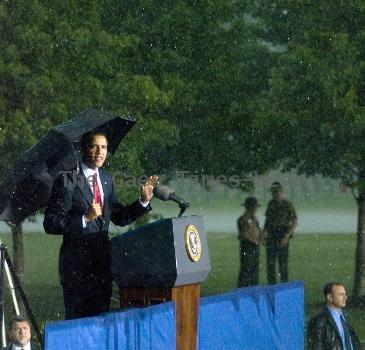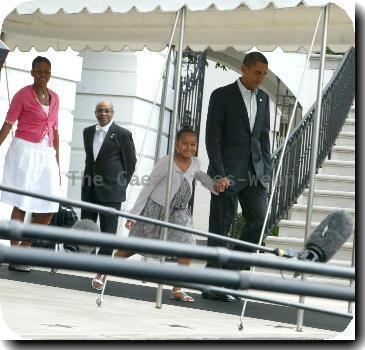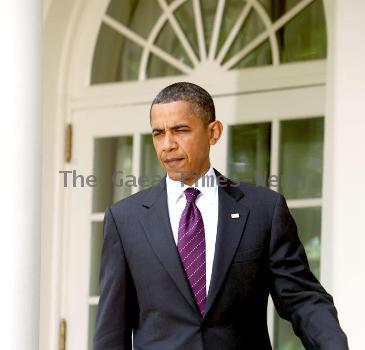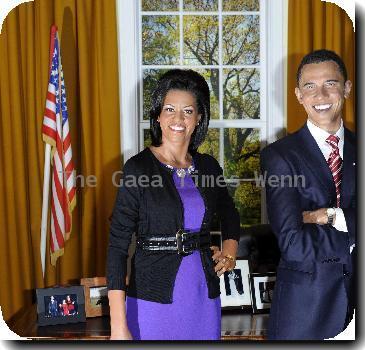As Afghans protest; Florida pastor says he won’t burn Qurans if he can meet with NY imam
By Antonio Gonzalez, APFriday, September 10, 2010
As Afghans protest, Jones says he won’t burn Quran
GAINESVILLE, Fla. — As thousands of Afghans protested a tiny Florida church’s plan to burn the Muslim holy book, the church’s pastor said he won’t follow through with the burning if he’s able to meet Saturday with the organizers behind a mosque planned near ground zero in New York.
In Afghanistan, at least 11 people were injured Friday in protests.
Police in the northern province of Badakhshan said several hundred demonstrators ran toward a NATO compound where four attackers and five police were injured in clashes. Protesters also burned an American flag at a mosque after Friday prayers. In western Farah province, police said two people were injured in another protest.
Speaking to NBC’s “Today” show, the Rev. Terry Jones said if he meets with the imam in New York, he won’t burn the Quran. It wasn’t clear if he meant the burning would be halted indefinitely or just for Saturday.
Imam Muhammad Musri, the president of the Islamic Society of Central Florida, told CBS’ “The Early Show” he had a commitment for Jones and himself to meet in New York with the imam there.
City officials in Gainesville said Friday that no matter what Jones says he’ll do, they planned to stick with their plan to increase security in response to the event.
Earlier, Jones and Musri had disagreed sharply on the terms of their agreement.
Jones said Thursday he would call off the planned burning of Qurans based on a deal negotiated with Musri that the location of a mosque planned near ground zero in New York would be changed.
But Musri said he was clear on Thursday when he told Jones that he could only set up a meeting with planners of the New York City mosque. Jones responded by suggesting that he would go forward with his plan on Saturday after all.
“We are just really shocked,” Jones said of Musri. “He clearly, clearly lied to us.”
For U.S. political leaders and Muslims around the world who have been outraged by Jones’ antics, the on-again, off-again threat bred even more frustration.
Cleric Rusli Hasbi told 1,000 worshippers attending Friday morning prayers in Indonesia, the world’s most populous Muslim country, that whether or not he burns the Quran, Jones had already “hurt the heart of the Muslim world.”
“If he’d gone through with it, it would have been tantamount to war,” the cleric said in the coastal town of Lhokseumawe. “A war that would have rallied Muslims all over the world.”
Muslims consider the book the sacred word of God and insist it be treated with the utmost respect.
In Afghanistan, where tens of thousands of U.S. troops are in harm’s way, President Hamid Karzai said he heard Jones had perhaps abandoned his Quran-burning plan.
“The holy book is implanted in the hearts and minds of all the Muslims,” Karzai said. “Humiliation of the holy book represents the humiliation of our people. I hope that this decision will be stopped and should never have been considered.”
Previously, Jones had not invoked the mosque controversy as a reason for his planned protest at his Dove World Outreach Center. Instead, he cited his belief that the Quran is evil because it espouses something other than biblical truth and incites radical, violent behavior among Muslims.
Opponents of the New York City mosque argue it is insensitive to families and memories of Sept. 11 victims to build a mosque so close to where Islamic extremists flew planes into the World Trade Center and killed nearly 2,800 people. Proponents say the project reflects religious freedom and diversity and that hatred of Muslims is fueling the opposition.
President Barack Obama urged Jones to listen to “those better angels,” saying that besides endangering lives, it would give Islamic terrorists a recruiting tool. Defense Secretary Robert Gates took the extraordinary step of calling Jones personally.
Outside London’s Central Mosque across from Regent’s Park, worshippers chatted, fed geese or posed for pictures Friday by the children’s boating pond. Those interviewed about the threatened Quran burning seemed more upset by the media coverage of it than the threat itself.
Medhat Singab, a 47-year-old Egyptian-born Briton, said the media was making a circus of “a church with 30 followers and an idiot.”
“They can go on burning the Quran,” he said, “It’s not going to destroy Islam.”
Jamal Ali, 17, said he was talking about the issue with his friends on his way to the mosque. The Sudanese-born student said he thought rowdy protests weren’t the right reaction.
Iraq’s top Shiite cleric Grand Ayatollah Ali al-Sistani said the intent to burn copies of the Quran is Jones’ “expression of hatred of Islam” but called on Muslims to restrain their reactions and not offend Christians in any way.
“This disgraceful act contradicts the very duties of religious and spiritual leadership to enhance the value of peaceful coexistence and safeguard the rights and mutual respect among religions,” al-Sistani said in a statement posted on his website Friday.
Jones’ church, which has about 50 members, is independent of any denomination. It follows the Pentecostal tradition, which teaches that the Holy Spirit can manifest itself in the modern day.
News of the possible cancellation also was welcomed by Jones’ neighbors in Gainesville, a city of 125,000 anchored by the sprawling University of Florida campus. At least two dozen Christian churches, Jewish temples and Muslim organizations in the city had mobilized to plan inclusive events, including Quran readings at services, as a counterpoint to Jones’ protest.
Jones said at the news conference that he prayed about the decision and concluded that if the mosque was moved, it would be a sign from God to call off the Quran burning.
Part of the pressure exerted on Jones came from Gates who briefly spoke to the pastor before his first announcement to call it off. Gates expressed “his grave concern that going forward with this Quran burning would put the lives of our forces at risk, especially in Iraq and Afghanistan,” Pentagon spokesman Geoff Morrell said.
Associated Press Writers Ayi Jufridar in Lhokseumawe, Indonesia; Robert Reid in Kabul; Anne Flaherty and Lolita C. Baldor in Washington; Raphael Satter in London; and AP Legal Affairs Writer Curt Anderson in Miami contributed to this report.
Tags: Afghanistan, Asia, Barack Obama, Central Asia, Florida, Friday morning, Gainesville, Gaza Strip, Middle East, New York, New York City, North America, Palestinian Territories, Protests And Demonstrations, Quran-burning, Religious Strife, Terry jones, United States








